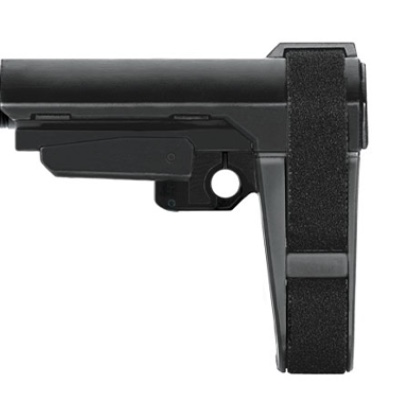 On Monday, January 31, the Bureau of Alcohol, Tobacco, Firearms, and Explosives’ (ATF) published the final Factoring Criteria for Firearms with Attached “Stabilizing Braces” rule for public inspection in the federal register.
On Monday, January 31, the Bureau of Alcohol, Tobacco, Firearms, and Explosives’ (ATF) published the final Factoring Criteria for Firearms with Attached “Stabilizing Braces” rule for public inspection in the federal register.
This rule subjects almost all firearms with a stabilizing brace to the registration and taxation requirements of the National Firearms Act.
There is currently litigation over this rule, but that litigation will take time to sort out. For our clients who wish to comply with the registration process, we have put together this information to help you.
The rule was first posted on January 13 and ATF has attempted to clarify several issues, which include:
1) Braces that are removed from firearms do not necessarily have to be destroyed or altered in a way that prevents them from being reattached. This is because under United States v. Thompson/Center Arms Co. if the part can be assembled into multiple lawful configurations, it is not unlawful to possess. If you own a 16 inch AR pistol, it could be assembled into a lawful pistol.
2) Imported pistols with stabilizing braces were not initially permitted because of violating 18 U.S.C. § 922(r). But ATF updated their FAQ page to state that while the assembly would violate the rule, they will permit those with imported pistols the same options as anyone else under the fule rule without further modification.
 NFA Gun Trust Lawyer Blog
NFA Gun Trust Lawyer Blog



 Funding a trust is a basic concept that is necessary for a trust to be valid. The legal concept is that the trust does not exist if there is nothing in the trust. A Gun Trust can be funded with a firearm, money, or any other asset. Typically a Gun Trust will be used to acquire firearms and is often used for Title II Firearms. When you put money in or assign money to the trust, you have funded it and it is now valid. If you never assign property to a trust, it can create problems.
Funding a trust is a basic concept that is necessary for a trust to be valid. The legal concept is that the trust does not exist if there is nothing in the trust. A Gun Trust can be funded with a firearm, money, or any other asset. Typically a Gun Trust will be used to acquire firearms and is often used for Title II Firearms. When you put money in or assign money to the trust, you have funded it and it is now valid. If you never assign property to a trust, it can create problems.